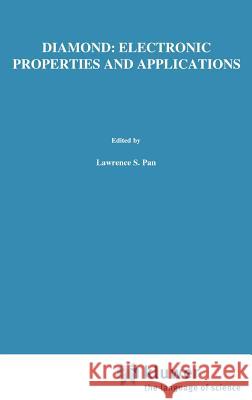Diamond: Electronic Properties and Applications » książka
Diamond: Electronic Properties and Applications
ISBN-13: 9780792395249 / Angielski / Twarda / 1994 / 472 str.
The use of diamond for electronic applications is not a new idea. As early as the 1920's diamonds were considered for their use as photoconductive detectors. However limitations in size and control of properties naturally limited the use of diamond to a few specialty applications. With the development of diamond synthesis from the vapor phase has come a more serious interest in developing diamond-based electronic devices. A unique combination of extreme properties makes diamond partiCularly well suited for high speed, high power, and high temperature applications. Vapor phase deposition of diamond allows large area films to be deposited, whose properties can potentially be controlled. Since the process of diamond synthesis was first realized, great progress have been made in understanding the issues important for growing diamond and fabricating electronic devices. The quality of both intrinsic and doped diamond has improved greatly to the point that viable applications are being developed. Our understanding of the properties and limitations has also improved greatly. While a number of excellent references review the general properties of diamond, this volume summarizes the great deal of literature related only to electronic properties and applications of diamond. We concentrate only on diamond; related materials such as diamond-like carbon (DLC) and other wide bandgap semiconductors are not treated here. In the first chapter Profs. C. Y. Fong and B. M. Klein discuss the band structure of single-crystal diamond and its relation to electronic properties.











